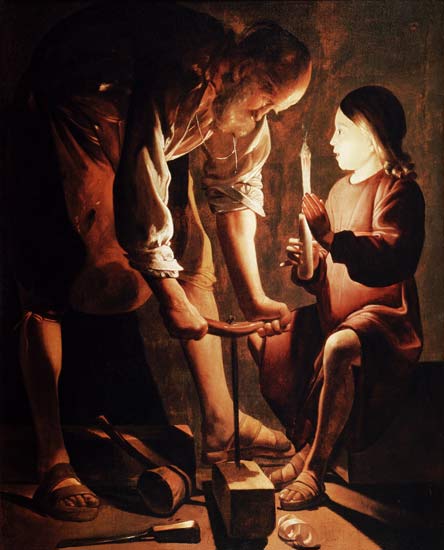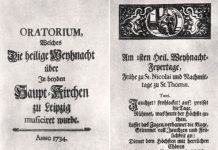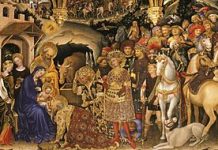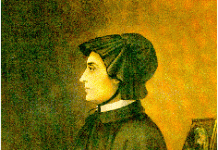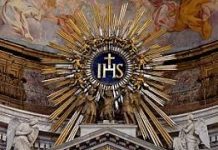Today, Sunday 20, 2021, in the English speaking world, we celebrate Father’s Day. That means that both Malta as well as Canada are celebrating the same memorial day. Adding to this, today, on Friday 20 June 2003, I was ordained a priest from the hands of a holy Archbishop Mons. Joseph Mercieca. Finally, these two festivities are taking place at the year dedicated to St Joseph, the patron saint of the Church and the fathers in particular. Is there a relation between these three beautiful events?
Being a father is something truly beautiful. It is so life-giving to have a son or a daughter whom you can love, take care of and give your life to. In my hospital ministry many fathers told me that one of their best moments in life was certainly when their children were born. However, and like every kind of vocation under the sun, being a father is not a ready-made business. One becomes a father by time. To this end David Gottesman says it so clearly: Fathers, like mothers, are not born. Men grow into fathers and fathering is a very important stage in their development. Obviously this generative trait in every man needs care to be pruned to grow and give more abundant good fruit. Here Jack Baker’s reflection highlights what we are saying when he said: Every dad, if he takes time out of his busy life to reflect upon his fatherhood, can learn ways to become an even better dad.
If a father of a family needs a time out so that he could mature in his way of fathering. how much more we priests, as spiritual fathers of God’s People, need to find time to let ourselves be formed in the way of being and serving as priests. In the many courses I have been graced to attend on priestly formation, I came to realize that it is one thing to be ordained a priest and far another to live as a priest. In my priestly experience the Holy Spirit taught me to be more aware and responsible to take my priestly formation seriously. No one can give from what he does not have, and we give from what has been given to us. It is precisely for this reason that a priest has to invest in his own ministerial identity and life by continually engaging himself in ongoing formation, for which lay people see the need. Pope Saint John Paul II’s post-synodal apostolic exhortation on the formation of priests in the circumstances of the present, Pastores Dabo Vobis, insists exactly on this point when it says: Lay people themselves had asked that priests commit themselves to their formation so that they, the laity, could be suitably helped to fulfill their role in the ecclesial mission which is shared by all. Indeed, “the more the lay apostolate develops, the more strongly is perceived the need to have well – formed holy priests (no. 3).
To start with, my priestly life experience throughout these eighteen years has been for me a great opportunity to give primacy to prayer in my life. When I had the joy to pray more, I saw my life and ministry flourishing magnificently. If, in Pope Francis’ understanding, being a priest means, as he said during a meeting with pastors and priests in Rome, that we are always priests with all our soul and with all our heart[,]… being an ambassador of Christ … [which] is a mission that penetrates our entire being, how can we sideline our prayer life? On this crucial aspect of my priestly life I cannot not mention the beautiful address Pope Francis delivered when he met the clergy at the Palatine Chapel in the Royal Palace of Caserta on Saturday 26 July 2014 while he was visiting Caserta:
A Bishop who does not pray, a priest who does not pray has closed the door, has closed the path of creativity. It is precisely in prayer, when the Spirit makes you feel something, the devil comes and makes you feel another; but prayer is the condition for moving forward. Even if prayer can often seem boring. Prayer is so important. Not only the prayer of the Divine Office, but the liturgy of the Mass, quiet, celebrated well with devotion, personal prayer with the Lord.
If we do not pray, perhaps we will be good pastoral and spiritual entrepreneurs, but the Church without prayer becomes an NGO, she does not have that unctio Sancti Spiritu. Prayer is the first step, because one must open oneself to the Lord to be able to be open to others. It is the Lord that says, “Go here, go there, do this…”, you will be inspired by the creativity that was very costly for many saints. Think of Blessed Antonio Rosmini, who wrote The Five Wounds of the Church, who was really a creative critic because he prayed. He wrote that which the Spirit made him feel. For this, he entered a spiritual prison, that is, in his home: he could not speak, he could not teach, he could not write, his books were placed on the Index. Today, he is Blessed! Many times creativity brings you to the cross. But when it comes from prayer, it bears fruit. Not creativity that is a little sans façon and revolutionary, because today it is fashionable to be a revolutionary; no, this is not of the Spirit. But when creativity comes from the Spirit and is born in prayer it can bring you problems. Creativity that comes from prayer has an anthropological dimension of transcendence, because through prayer you open yourself to transcendence, to God.
Furthermore, what a blessing it has been in my life to get to know and share my ministerial journey with my other brother priests both of my congregation, together with those coming from different congregations and the diocesan ones too. To this end Pope Francis’ letter to us priests on the 160th anniversary from the death of the Curé d’Ars, given from Rome on 4 August 2019, was of great inspiration for me.
Thank you for working to strengthen the bonds of fraternity and friendship with your brother priests and your bishop, providing one another with support and encouragement, caring for those who are ill, seeking out those who keep apart, visiting the elderly and drawing from their wisdom, sharing with one another and learning to laugh and cry together. How much we need this! But thank you too for your faithfulness and perseverance in undertaking difficult missions, or for those times when you have had to call a brother priest to order. “For his mercy endures forever”.
While acknowledging the importance of laughter, balance, being aware of negativity, connecting with others, sleep, food, exercise, leisure, and pacing, taking saints as models for my personal and ministerial life as a priest is essential. For that end, St Joseph, to whom we are dedicating this year, is undoubtedly a case in point. His values, when viewed in depth, are really sound for a fruitful priestly life.
In his apostolic letter for the 150th anniversary of the proclamation of Saint Joseph as patron of universal Church, Patris Corde, Pope Francis gives salient points of discernment which can greatly help to lead a holy priestly life on the example of St Joseph. Thus, if St Joseph was at the service of the entire plan of salvation (no. 1), am I, as a priest, at the service of God’s plan for his people? Second, if St Joseph saw Jesus grow daily “in wisdom and in years and in divine and human favour” (Lk 2:52) even if at difficult times he lived “in hope against hope” (Rom 4:18) (no.2), what is my behaviour when things go the opposite way I desire them to go? What do I do in those challenging situations? Third, if in every situation, Joseph declared his own “fiat”, like those of Mary at the Annunciation and Jesus in the Garden of Gethsemane (no.3), am I declaring my own “fiat” when situations are not clear? Fourth, Joseph accepted Mary unconditionally (no.4). Do I accept others unconditionally as he did? Fifth, in the face of difficulty, Joseph kept engaging himself with God’s plan for him; hence the more difficulties he had to contend with, the more resources of grace were given to him. Joseph gave his all for Jesus and Mary. When I meet with difficulties do I keep going on knowing that God will not let my hand and He is there for me to help me and take the very best out of me? Do I remain generous in my self-giving to God in his Church? Sixth, Joseph was a hard worker. Do I work as diligently for God’s vineyard? Seventh, Joseph found happiness not in mere self-sacrifice but in self-gift (no.7). He decreased so that Jesus and Mary increased. Is this not a very important characteristic in my life as a priest that Jesus in others and myself increase while my ego decreases? Am I letting the Holy Spirit of conversion carving this spiritual trait out of me?
Lord, on my eighteenth anniversary of my priestly life and as we are celebrating Father’s Day, help me to be a beloved father, a tender and loving father, an obedient father, an accepting father, a creatively courageous father, a working father and a father in the shadows for you and for your people on the example of St Joseph. Amen.

